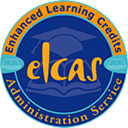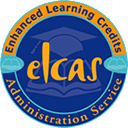Professional Consulting ‑ CMI Level 7




Course Overview
This course leads to an accredited qualification:
Level 7 in Professional Consulting
| Course Summary | |||
|---|---|---|---|
| Tutor-led Learning: | 2 modules delivered over 4 days | Total CPD Earned: | 28 hours |
| CPD Accredited by: | ChTC CPD | ||
| Qualification Registration: | CMI level 7 | ||
| CMI Level 7 Qualification Support Summary | ||
|---|---|---|
| Supporting Features | Award | Certificate |
| Applied Learning Sessions: | 1 x 3.5 hours duration | 1 x 3.5 hours duration |
| Group Tutorial Sessions: | 2 x 1 hour duration | 4 x 1 hour duration |
Develop a Confident, Ethical, and Credible Consulting Practice
This programme is designed for individuals offering—or aiming to offer—consultancy services in either an internal or external capacity.
Whether you’re an established consultant seeking to sharpen your professional edge or an organisational practitioner looking to adopt a more consultative approach, this course provides the structure, tools, and insight to elevate your impact.
Programme Overview
Delivered over four days in a modular format, the programme blends core theory with practical application:
• Module 1 (2 days): Explore the principles of ethical and effective consultancy, and gain confidence in using industry-recognised tools, models, and frameworks.
• Module 2 (2 days): Bring your learning to life through real-world case studies and practical consultancy exercises that challenge and develop your practice.
Expert-Led Learning
At ChTC, we combine academic rigour with real-world relevance. Our tutor team are experienced consultants and thought leaders who bring deep expertise and a passion for developing reflective, skilled professionals.
Each programme is grounded in current best practice and shaped by the latest thinking in the field.
Accreditation
✔ CMI Level 7 Accreditation in Professional Consulting
To achieve certification, participants must:
• Attend all four learning days
• Complete associated tutorials and learning activities
Which option is right for me?
One credit typically equates to 10-hours of learning at your chosen qualification level.
An award is the smallest size of qualification and refers to any qualification of less than 13-credits and which would normally take under 130 hours in total to complete.
A Certificate refers to a qualification size of between 13 and 36 credits and which would take a minimum of 130 hours to complete.
Next Available Course
-
Duration: 2 Days
15 September 2025
16 September 2025
-
Duration: 2 Days
3 November 2025
4 November 2025
-
In PersonVirtualBlended
| Pricing & Qualification Options | ||
|---|---|---|
| CMI Level 7 in | ||
| Professional Consulting | ||
| Option | In Person | Virtual |
| Award | 1995 | 1855 | Certificate | 2349 | 2209 |
| Prices exclusive of VAT | ||
Online booking launches
1 June 2025
Fancy an additional pre-live discount?
Simply email us with the course you’re interested in, and we’ll personally send you an exclusive, one-time offer available only until
Midnight 31st May
Act now – this discount offer will not be repeated.
About the programme
Take a closer look – explore each tab for detailed programme insights!
- Learning Outcomes
- Delivery Mode
- LMS
- CPD
- OFQUAL
- Assessment
- Tutorial Support Sessions
- Applied Learning Sessions
-
Benefits for individuals
- Develop your professional consultancy skills
- Explore a range of tools and techniques that can support your consultancy interventions
- Enhance your consultancy value proposition
- Practice your consultancy skills in a safe learning environment
Benefits for employers
- Support your internal staff to develop a consultative approach to their organisational role
- Grow the knowledge and skills existing organisational consultants
- Develop capacity and capability aligned to a recognised competency framework
-
Whether you attend in person or join virtually, you are part of a fully live and interactive experience, where your presence and participation are essential.
This programme is accessible in the following modes:
In-person
Our in-person courses are designed to provide an immersive learning experience that fosters direct interaction with instructors and peers. You'll benefit from a dynamic classroom environment where ideas are exchanged freely, hands-on activities reinforce your learning, and real-time feedback enhances your understanding. The personal connections you build in our face-to-face sessions create a supportive community that extends beyond the classroom, offering valuable networking opportunities and collaborative projects. With access to our cutting-edge facilities and resources, attending in person allows you to fully engage with the course material and participate in spontaneous discussions that can enrich your educational journey.
Virtual Classroom
Our virtual classroom brings the quality and engagement of in-person learning to you, wherever you are. Leveraging the latest in online education technology, our virtual courses are designed to be interactive and engaging, with live lectures, real-time discussions, and collaborative activities that mirror the in-person experience. You'll have the flexibility to join from the comfort of your home or office. Our virtual platform ensures that distance is no barrier to accessing high-quality education, with all the tools you need to succeed, including digital resources, virtual breakout rooms for group work, and direct communication with instructors and fellow participants.
Hybrid
Some of our programs offer the same live training to both in-person and virtual participants, ensuring a cohesive and integrated learning experience for all. As we develop our skills in various co-coaching sessions, in-person attendees will have the unique opportunity to coach both online and face-to-face, bridging the gap between traditional and digital environments. This dual-mode coaching experience is invaluable in today's world, where the ability to navigate and excel in both physical and virtual spaces is increasingly essential. By mastering the art of hybrid coaching, you’ll gain practical skills that are not only relevant but critical for thriving in a rapidly evolving professional landscape.
Blended
This flexible learning model allows you to tailor your educational experience to seamlessly fit your lifestyle, offering the best of both in-person and remote participation. With the blended approach, you have the freedom to attend sessions on campus when you can, enjoying face-to-face interactions and hands-on experiences, while also having the option to join remotely whenever needed. This adaptability ensures that your learning remains consistent and uninterrupted, regardless of your location or schedule. Whether you’re balancing work, travel, or other commitments, the blended model empowers you to stay engaged and fully participate in your education on your terms.
-
Advantage LMS
Our Learning Management System (LMS) is a user-friendly digital platform designed to deliver, manage and track all your educational and training content in one place.
It streamlines the learning experience by providing a centralised hub where you can access course materials, complete assessments, engage in interactive activities, and receive personalised feedback.
As a participant on a ChTC programme, you’ll receive access to our LMS from the moment you book with us.
Key Features and Functions:
- Update your personal details
- View and manage your enrolled courses
- Download joining instructions and pre-course workbooks
- Access learning resources and materials
- Book support services such as tutorials (additional services may vary depending on your course)
- Upload assignments for marking
- Receive assessor feedback and download your mark sheets
- Track your progress throughout the programme
-
By undertaking this course you will also earn CPD accredited by:
ChTC CPD
ChTC CPD is the trust mark we add to our training to demonstrate the high value of a learning experience for our participants.
CPD is the ongoing process through which professionals maintain and enhance their knowledge, skills, and competencies throughout their careers. Whilst CPD is mandatory only in some industries such as finance, healthcare, law and others, continuous learning on and for work is part of the natural competence development process for all individuals engaged in any professional activity.
It is not about the validity of our professional knowledge; instead, it focuses on our ability to deliver training that enables our participants to achieve their professional goals, but these rely on them being added .
-
The Office of Qualifications and Examinations Regulation

The Office of Qualifications and Examinations Regulation (Ofqual) regulates qualifications, examinations and assessments in England.
For your convenience, we provide the related OFQUAL Qualification numbers and links to the gov.uk website where this data is maintained. From that page, the awarding organisation may be confirmed and access to the relevent specification is also provided. -
This programme leads to a Level 7 Qualification in Professional Consulting awarded by the Chartered Management Institute (CMI).
Upon completing the training modules, you’ll work towards meeting the unit learning outcomes to attain your qualification.
Depending on your career objectives and time commitment, you can choose from either:
- Award: A concise introduction focusing on foundational management skills.
- Certificate: A more comprehensive exploration of management principles, building upon the Award.
Here’s what’s involved:
1. Written Assignment
Depending on qualifcation size, you’ll submit one or more written assignments exploring aspects of the principles and practices of professional consulting. This enables you to demonstrate your understanding of consulting theories, approaches, and dynamics, providing a strong foundation for applied practice.
2. Practical Experience
Depending on the unit selected, you may be required to design and deliver consulting interventions, supported by:
- A consulting project plan
- Records of client interactions
- A project evaluation report
This element provides practical evidence of your ability to design and lead structured, goal-oriented consulting engagements in a professional setting.
3. Reflection and Professional Development
To complete the qualification, you’ll reflect on your practice and produce a range of developmental outputs, including:
- A reflection on your consulting activity
- A Personal Development Plan (PDP)
- A summary of supervision sessions
- A plan to support client organisations beyond the consulting engagement
4. Support & ALS
You’ll also take part in Group tutorials and Applied Learning Sessions to support your development.
This process encourages deep learning and supports your continued growth as a professional consultant.
Understanding Assessment Criteria (ACs)
Each assessed piece of work, including written assignments, is structured around Assessment Criteria (ACs). These criteria break down the required knowledge, understanding, and evidence needed to meet the qualification standards. Full guidance on how to meet each AC is provided both within the course content and on the Learning Management System (LMS), helping you understand what’s expected and how to structure your responses effectively.
Explore the assesment units by qualfication size
-
Option 1 - Award
- The table below denotes the available units for this qualification
- A minimum of 7 credits are required to attain this qualifcation
- Learners undertaking this qualification level complete any ONE assignment from the list of options
- From the date of your CMI registration, you will have 12 months to complete your assignments
- The estimated Total Qualification Time (TQT) is 70 hours
-
What is Total Qualification Time (TQT)?
TQT is the estimated time it takes to complete the qualification, including:
- Pre-course preparation
- Inter-module activities
- Classroom or virtual attendance
- Tutorials
- Applied Learning Sessions
- Assignment writing
- Independent reading and research
- Peer group discussions
Unit Reference Title Credit Value Required Submission Word Count 7A35-720 Principles of professional consulting 10 Assignment 4000 - 4500 7A35-721 Leadership in professional consulting 9 Assignment 4000 - 4500 7A35-722 Practice of professional consulting 10 Assignment 4000 - 4500 7A35-723 Leading innovation and change through professional consulting 9 Assignment 4000 - 4500 7A35-724 Personal and professional development for professional consultants 7 Assignment 3500 - 4000 7A35-725 Professional consulting expertise 7 Assignment 2500 - 3000 7A35-726 Delivering client requirements through professional consulting 10 Assignment 4000 - 4500 - Option 2 - Certificate
- The table below denotes the available units for this qualification
- A minimum of 14 credits are required to attain this qualifcation
- Learners undertaking this qualification level complete any TWO assignments from the list of options
- From the date of your CMI registration, you will have 18 months to complete your assignments
- The estimated Total Qualification Time (TQT) is 140 hours
-
What is Total Qualification Time (TQT)?
TQT is the estimated time it takes to complete the qualification, including:
- Pre-course preparation
- Inter-module activities
- Classroom or virtual attendance
- Tutorials
- Applied Learning Sessions
- Assignment writing
- Independent reading and research
- Peer group discussions
Unit Reference Title Credit Value Required Submission Word Count 7C35-720 Principles of professional consulting 10 Assignment 4000 - 4500 7C35-721 Leadership in professional consulting 9 Assignment 4000 - 4500 7C35-722 Practice of professional consulting 10 Assignment 4000 - 4500 7C35-723 Leading innovation and change through professional consulting 9 Assignment 4000 - 4500 7C35-724 Personal and professional development for professional consultants 7 Assignment 3500 - 4000 7C35-725 Professional consulting expertise 7 Assignment 2500 - 3000 7C35-726 Delivering client requirements through professional consulting 10 Assignment 4000 - 4500 -
Tutorials at ChTC are designed to help you successfully complete the assessment and assignment components of your chosen qualification.
Led by an experienced ChTC tutor, these sessions are flexible and can be tailored to suit your personal learning style and needs—whether you need structured guidance or just a space to discuss your progress.
How Our Learners Use Their Tutorials:
✔ Getting started – Receive initial support to organise your thoughts before beginning an assignment.
✔ Boosting motivation – Overcome procrastination and start writing with confidence.
✔ Clarifying requirements – Get help with specific Assessment Criteria (ACs) that may be unclear.
✔ Receiving feedback – Share your work with a tutor or group for insights on its readiness for submission.
✔ Addressing assessor feedback – Discuss feedback on referred ACs and understand how to improve them.
Coming Soon! Participants on ChTC programmes will also have access to video tutorials covering key Assesment Criteria (ACs) areas, offering additional on-demand support to aid assignment completion.
Understanding Assessment Criteria (ACs)
Each assessed piece of work, including written assignments, is structured around Assessment Criteria (ACs). These break down the required knowledge, understanding and evidence needed to meet the qualification standards.
At ChTC, our tutorials are here to ensure you feel fully supported and confident in completing your qualification.
Find your inclusive entitlement for this programme below:
Qualification Option Session Quantity Duration Award Group Tutorial 2 sessions 1 hour each Certificate Group Tutorial 4 sessions 1 hour each Some of our programmes, particularly our leadership programmes, include Applied Learning Workshops. These workshops provide delegates with the opportunity to apply their learning from the taught programme in their workplace, using it to drive change and improvements.
For programmes that lead to formal accreditation through the Institute of Leadership and Management (ILM), the Chartered Management Institute (CMI), or contribute to CPD credits, attendance at Applied Learning Workshops is an integral part of the required Guided Learning Hours (GLH). As such, delegates should consider participation in these sessions as a core component of their programme.
The Purpose of Applied Learning Workshops
These workshops provide dedicated time and space for delegates to:
✔ Discuss theories, models, and concepts explored during the knowledge transfer phase.
✔ Reflect on their leadership journey, including progress, challenges, and successes.
✔ Share practical experiences of applying learning in their workplace.
✔ Receive support and challenge from peers to refine their thinking and approach.
As individuals share their development journey, colleagues are encouraged to actively engage, fostering a collaborative learning environment. Participants can:
- Ask thoughtful questions to deepen understanding.
- Challenge perspectives to encourage critical thinking.
- Share experiences and insights that may support the person presenting.
A Structured Yet Flexible Learning Approach
While Applied Learning Workshops are not as formally structured as an Action Learning Set (ALS), they are rooted in ALS principles, as developed by Reg Revans, following the learning formula:
L = P + Q + R
L = Learning
P = Programmed Knowledge (established knowledge, frameworks, and models)
Q = Questioning (challenging assumptions and exploring new perspectives)
R = Reflection (deepening understanding through self-examination and discussion)
Through questioning and reflection, participants are encouraged to re-evaluate their existing ways of thinking, challenge assumptions, and develop new insights and learning—ensuring their knowledge translates into meaningful workplace impact.
Qualification Option Session Quantity Duration Award Applied Learning Session 1 session 3.5 hours each Certificate Applied Learning Session 1 session 3.5 hours each
Upcoming Course Dates
Late Summer Course
-
Duration: 2 Days
15 September 2025
16 September 2025
-
Duration: 2 Days
3 November 2025
4 November 2025
-
In PersonVirtualBlended
AvailabilityOnline booking launches
1 June 2025
Fancy an additional pre-live discount?
Simply email us with the course you’re interested in, and we’ll personally send you an exclusive, one-time offer available only until
Midnight 31st May
Act now – this discount offer will not be repeated.